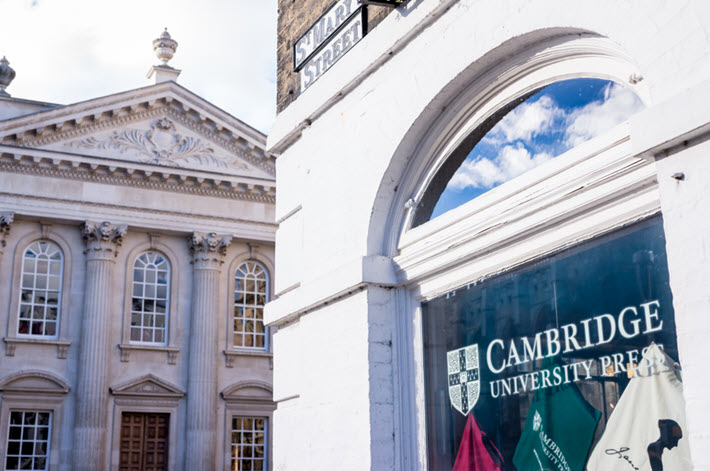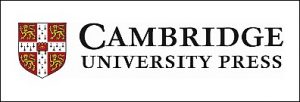
Senate House stands behind the Cambridge University Press bookstore window in Cambridge’s city center. Image – Getty: Nicola Ferrari
By Porter Anderson, Editor-in-Chief | @Porter_Anderson
An ‘Open and Transparent Negotiation Process’
The United Kingdom’s Cambridge University Press and the Munich-based Max Planck Society announced on Thursday (September 18) that they’ve collaborated to develop a new book-sales agreement that combines evidence-based acquisition and open-access funding.
 Both organizations are intent on driving more open-access publishing, and want to make it easier for authors to publish in this way.
Both organizations are intent on driving more open-access publishing, and want to make it easier for authors to publish in this way.
Combining open access with evidence-based acquisition is expected to enable the institutions to decide how they want to spend their budgets and to ease the funding and administrative burden on authors who are publishing open-access.
 The flexibility from this new agreement to tailor the program each year depending on users’ needs should ensure that Max Planck can continually align the publishing model with the evolving needs of its researchers.
The flexibility from this new agreement to tailor the program each year depending on users’ needs should ensure that Max Planck can continually align the publishing model with the evolving needs of its researchers.
In a prepared statement on the news of this collaboration, Jack Macdonald, library sales director at Cambridge University Press, emphasizes the bespoke nature of this new sales and publishing model.
“This is the first agreement of this kind for the press,” Macdonald says, “and it reflects our commitment to making open-access publishing more affordable and accessible, while continuing to offer high-quality books and Elements to readers worldwide.

Jack Macdonald
“Cambridge and the Max Planck Society,” he says, “recognize the importance of collaborating to expand open-access book publishing, providing better support for authors, while maintaining access to ebooks.”
In case you’re not familiar with Macdonald’s use of the term elements, our coverage from July notes his reference. These are parts of the “Cambridge Elements” collection.
Under this model, new Cambridge books by authors at Max Planck Institutes will be eligible for open-access publishing.
Backlist titles will also be eligible for open-access conversion on a case-by-case basis, and Max Planck researchers will be granted unlimited access to books on the Cambridge Core platform.

Ádám Dér
Speaking for Max Planck, Ádám Dér, head of scientific information provision at the Max Planck Digital Library, highlights in his comment how this new agreement will benefit the Planck program’s academics.
“We’re excited to have worked closely with the Cambridge team through an exceptionally open and transparent negotiation process,” Dér says, “and to have reached an agreement that will enable our authors to not only access the books and Elements from Cambridge of relevance to them but also publish their books open-access with Cambridge University Press.
“This agreement reflects our longstanding and steadfast commitment to open access and ensures worldwide reach and the greatest possible impact for our researchers.”
For clarification, evidence-based acquisition refers to a model in which institutions, in this case, are given access to an extensive collection of Cambridge titles before they must decide which titles to purchase in perpetuity. The decisions are based on usage reports, which allows institutions to acquire titles based on user demand.
At Frankfurter Buchmesse (October 15 to 19), Cambridge University Press and Assessment will be in Hall 4.0, at Stand B16.
More from Publishing Perspectives on Cambridge University Press is here, more from us on the British market is here, more on university presses is here, more on academic and scholarly publishing is here, more on open access is here, more on the Max Planck Digital Library is here, and more on digital publishing is here.
Wherever our international readers are in the world, they use our free daily email to be sure they don’t miss any news. Sign up now.

